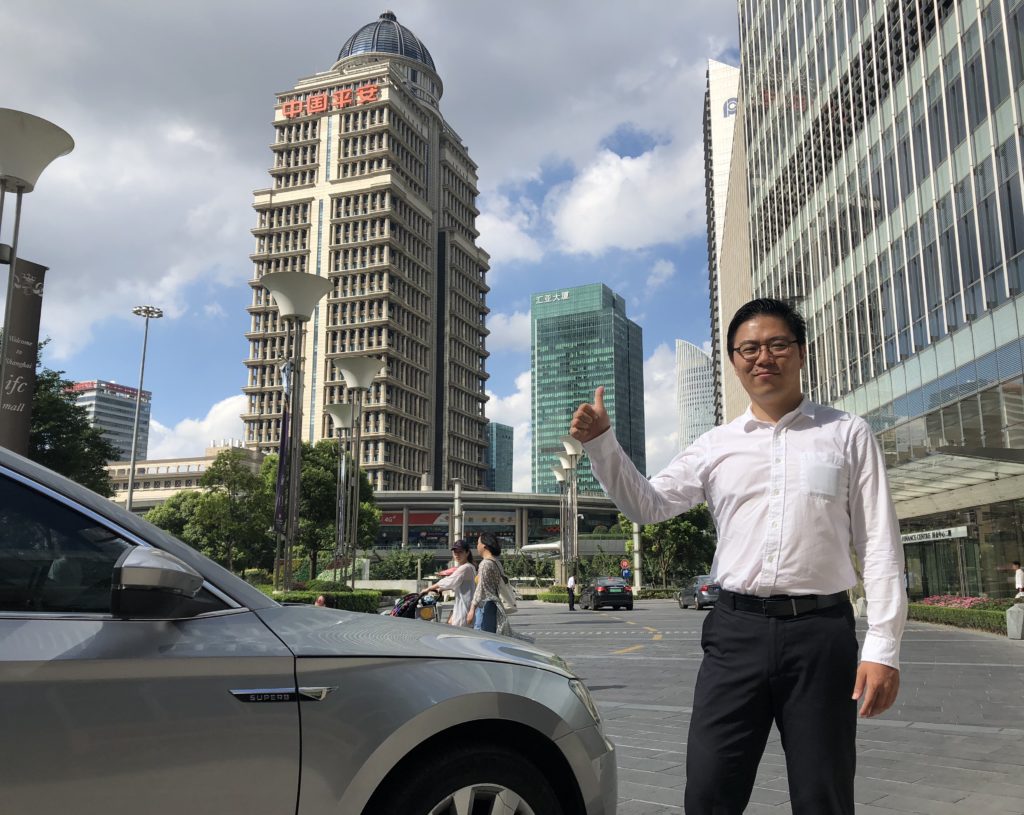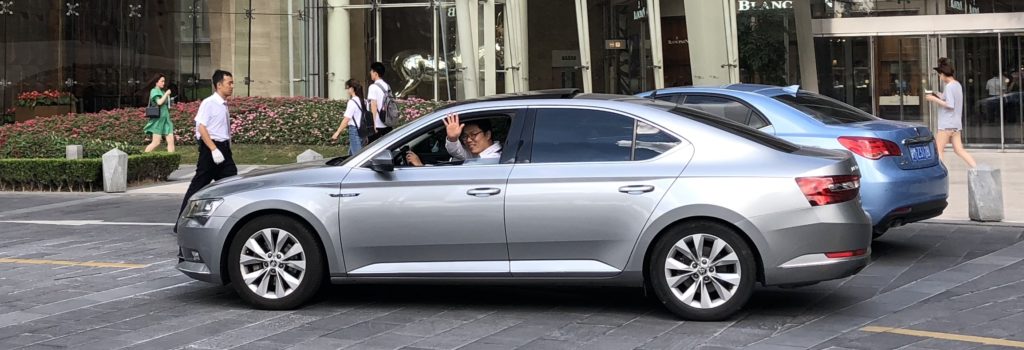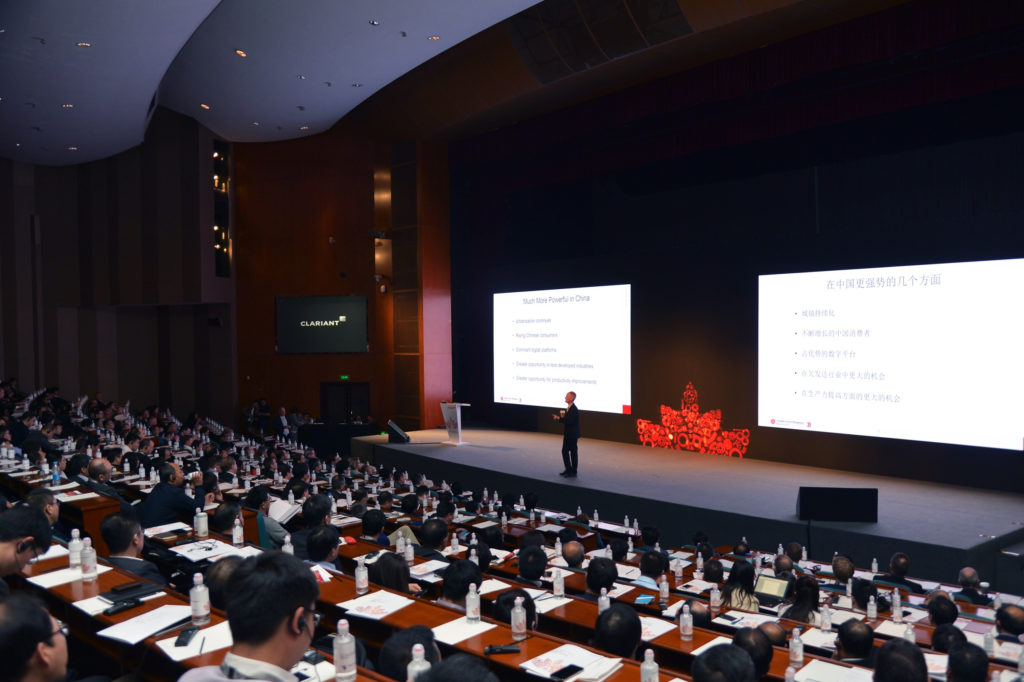I recently sat down with Wang Ziming, a Shanghai native, family man, entrepreneur and top driver for Didi Chuxing. My goal was to understand his work as a Didi driver. What was life like? How has it been changing? What’s next?
In this three-part series, I am going to try and detail how the other side of Didi is evolving. This is the side of the platform that we don’t really see as customers. And I wanted to get a better sense of the human side of this tech giant.
In this first part, I lay out a typical day in the life of a Didi driver. In Part 2, I will point out the software and services that Didi drivers are using. And in Part 3, I will detail the fascinating evolution of a system of people, processes and technology that moves +550M people around China.
An Introduction to Wang Ziming
I sat down with Wang Ziming at a coffee shop in IFC center in Pudong. He is a friendly guy who was quite open about his life and what he likes and dislikes about his job. Here are the basics of his background:
- An only child, he was born and grew up in the Jing An district of Shanghai, where he now lives with his own family today.
- He went to Shanghai University and then went into international trading. He eventually started his own small trading business, which deals mostly in textiles going to the US and Japan.
- He didn’t have a specific plan when he started driving for Didi. But in 2016, he was married with a family and was looking for a more stable income. Plus, he already owned his own car and it was a flexible way to make additional money. So he signed up with Didi Express, which was the normal process back then.
- Signing up meant going to a local Didi center and doing tests and forms. There was a day of training, with videos to watch. The company checked the insurance of the car and his drivers’ license. And the car was inspected.
- After driving for a while and getting good reviews, he was asked to be a team leader – and he now has a team of 30 drivers, which is the company limit. As drivers, they each get rated individually and as a team – and they are one of the highest rated teams in Shanghai.
A Bit About His Team
The drivers on Ziming’s team are an interesting mix of backgrounds. They are from across China, including Hubei, Jiangsu and Anhui. Most live in Shanghai with their families. Many have kids. Some are divorced. Some are retired Shanghainese. About 5-6 are solo guys who probably send money home.
About half of his team own their own cars. And he says those who don’t definitely plan to buy (Didi helps with this. More on driver services in Part 2). Many drivers go further and launch small rental groups that can have 10-100 cars (all driven by other Didi drivers). Nationally, about 4,000 of these small rental businesses work on the Didi platform, many of which have been started by Didi drivers.
A Day In the Life of a Didi Driver
I had Ziming walk me through a typical day for him and his drivers.
6-10am and the morning commute
The day of a Didi driver mostly follows the commute schedule. And that means getting up early and being ready for the wave of morning commuters. Ziming and all his team start the day early.
Ziming wakes up at 6am, eats breakfast, and gets ready for the day. At 7am, he turns on his phone and work officially begins. There are typically already 5-6 orders for rides waiting in his cue. By the time his wife and child wake, he is already out on the road.
Didi drivers can operate in two different modes for orders. They can operate in “Pick and Choose” and take the orders they want. Or they can operate in “Assigned” where the system assigns the rides and they must accept. Wang likes to operate in Assigned mode, which usually means picking up riders close by and driving about 30 minutes per order. So by the time he takes his break at 10am, he has been driving for 3 hours with no real downtime. And he has competed about 5-6 orders.
His schedule is a bit different from how many of his drivers start their days. Most of them start at 5-6am so they can get trips to the airport or train station. These trips are longer and mean fewer trips (but similar money). And these drivers will often operate in “Pick and Choose” as people going to the train station or airport early usually reserve their rides ahead of time.
Many of his drivers start at 6am and go straight through to 2pm. There is a 9 hour time for limit driving in a 24 hour period. So this means they are doing the bulk of the days’ driving during this period.
10am-2pm
Ziming takes a break at 10am to eat and recharge – and typically restarts driving at noon. He will drive until 2pm, capturing the lunch period. This is when the the office workers of Shanghai head out to lunch, which means lots of rides, especially if it is rainy or windy. Typically, he does 4-5 more trips during this 2-hour period.
At 2pm, he and most of his drivers usually head home. He checks emails and does some of his trading business. His drivers typically sleep and see their families.
The evening commute and weekends
The 5-7pm commute is more problematic. This is when Shanghai traffic becomes a bigger issue and a driver can often only do 2-3 trips. Some of his team already have their hours for the day and might choose to stay home. At 7pm, Ziming is usually home with his family having dinner.
At 9-11pm, there is another window of opportunity. Companies will often pay for rides home after 9pm so there are office workers with expense accounts looking for rides at this time. However, the volume is less and most of his team have already hit their 9-hour driving limit. Some go until 2am but most are home by midnight.
Weekends don’t have a commute so work is less structured. Ziming tends not to work and has a meal or outing with his entire family every weekend.
***
Thoughts on how the emerging “on demand” workforce is different in China
Chatting with Ziming I really started to question a lot of my assumption about this type of “on demand” / flexible work. These jobs (often referred to as the “gig economy”) are often described as a type of flexible, independent work. But from my talk, that is really not what is happening (or not only) at Didi.
- There is a whole world and a career path that has been created by and for these drivers. They work in teams. And they communicate all day long through their online chat room.
- They have a big suite of Didi-provided services. Everything from discount gas and insurance to apps that show where all the local bathrooms are. More on this in Part 2.
- They invest in this career. They build track records and they buy their cars.
- Many launch small businesses on the Didi platform.
- And, most importantly, there is the feeling that working for Didi is a career. That this is a platform you can build a career upon. That is important.
When studied in the USA, workers on these platforms have cited the below reasons for why they do this type of work (Kleiner Perkins slide).
The basics and the motivations seem different for most of his drivers. From his answers, the motivations appear to be:
1. A stable and attractive income. Obviously, this is a job. People are looking for income and the pay is the biggest factor. But you need to compare this income to other types of work in places like Shanghai. While it may be “extra income” in the USA, it is a full career in China. The overall pay, benefits (important) and stability in China are different than in the USA.
2. Flexible and interesting work. Ziming repeatedly mentioned how much more he likes this work than sitting in an office or a warehouse. He likes being out in the world and meeting interesting people. In our talk, he frequently mentioned how much he enjoys meeting new people and learning every day.
A side note: Last month, I visited a JD distribution hub and got to spend time with some of the delivery drivers. These are the people that deliver packages all over China. I got the same feeling from them. They enjoyed their work. They chat and joke all day. They enjoy being out in the world. Of course, it’s a job. But they seemed particularly happy.
3. A belief in Didi. It also clear that Didi was not viewed as an ordinary company. It was viewed as doing impressive things in China and had a bright future. I asked a lot about how he felt about building a career within Didi (this is an important aspect of platform businesses).
The best platform businesses get people to invest in them. They aren’t just channels to customers. People build their own careers or businesses upon them. For example, LinkedIn has enabled content creators (like myself) to build their reputations and audiences on the platform. Many of the Didi drivers seem to be building their careers and businesses on the platform. They are moving up from drivers to team leaders. They are buying their own cars. They are launching small rental businesses. That is a very important distinction in a platform business.
4. Good services and benefits. Beyond pay, there is insurance and other benefits. Car insurance. Car maintenance. Buying gas. Getting help with government licensing. And so on.
As will be detailed in Part 2, Didi has been building out a fairly impressive list of services for its drivers (note: When you have 30M people buying gasoline, you can negotiate good discounts). These types of services are important for the drivers – but also for Didi. One of the biggest problems ride-sharing platforms have is it is fairly easy for drivers to switch to other companies. Services and other types of support create a stickiness and loyalty that counter this.
***
Overall, I walked away with a better sense of the human side of this business. And that being an “on demand” driver on a tech platform is something very different in China than in the USA or Europe. In Part 2, I talk more about the more services and online tools Didi drivers are using. They are pretty cool and evolving quickly.
Thanks for reading, jeff
And thanks to Ziming for sitting down and chatting. Best wishes to you and your family.
———
I write and speak about the Chinese consumers and digital China.
My latest book Alwaleed, Khaled and Mohammed: An Insider’s Tell-All About the Risks of Doing Business in Saudi Arabia is coming out in 2019. This book is a tell-all of my experiences at the highest levels of Saudi Arabian business. It is what I think every foreign company and investor should know before doing business in the Kingdom. I detail my experiences in KSA and do a deep dive into the past projects of Alwaleed bin Talal (Kingdom Holding Co), his son Khaled Alwaleed and others. You can get more information at alwaleedkhaledmohammedbook.com.




